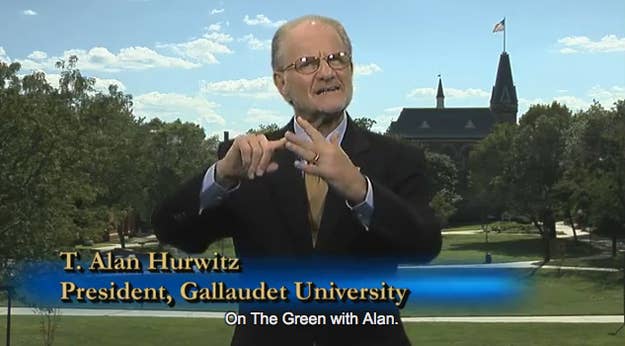
WASHINGTON — A Gallaudet University diversity officer suspended for signing the Maryland marriage referendum petition could have grounds for a lawsuit because the actions violate D.C.'s public policy, a leading law professor on speech rights said today.
Had a D.C. referendum been at issue, Gallaudet University President T. Alan Hurwitz's actions today placing chief diversity officer Dr. Angela McCaskill on administrative leave because she "participated in a legislative initiative " could even have constituted a criminal violation, UCLA law professor Eugene Volokh told BuzzFeed.
Under the D.C. Code, it is a criminal violation for "[a]ny person who ... by threats or intimidation, interferes with, or attempts to interfere with, the right of any qualified registered elector to sign or not to sign any initiative, referendum, or recall petition." The sentence for violating the provision can be up to a $10,000 fine and a year in prison.
In a recent article Volokh published in the Texas Review of Law & Politics, he wrote about whether general bans on "threats" apply to threats of loss of employment, noting that "in similar statutes, the terms 'threats,' 'intimidation,' and 'coercion' have indeed been interpreted to include threat of economic retaliation."
Because a Maryland law — and not a D.C. law — is at issue in the referendum, however, the D.C. Code's criminal provision is not directly implicated. But, it could indirectly apply to McCaskill's suspension through a civil lawsuit in which she seeks money or reinstatement.
Volokh explained how, noting that the D.C. criminal statute is likely also to lead to "a civil cause of action" — in other words, a private lawsuit seeking money or reinstatement — "under the 'wrongful discharge in violation of public policy' tort," which Volokh notes the D.C. courts have discussed in other contexts. A "tort" is an act that subjects a person to a lawsuit.
For McCaskill, Volokh wrote, this means, "There might still be a civil wrongful-discharge-in-violation-of-public-policy tort claim ... on the theory that it’s against public policy for employers to interfere with employees’ political choices, whether Maryland or D.C."
In other words, D.C. has established that interfering with attempts to sign or not sign an initiative, referendum, or recall petition are against its public policy, so attempts to do so to anyone in the District, regardless of where the referendum is actually taking place, could make the person or institution doing so subject to a lawsuit.
